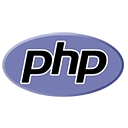Maintaining consistent and clean code is essential for collaboration and the long-term maintainability of your PHP projects. Code sniffing tools and adherence to coding standards play a crucial role in achieving this. In this guide, we'll explore PHP code sniffing, the importance of coding standards, and how to enforce them in your projects.
Why Code Sniffing and Standards Matter
Code sniffing, also known as linting, is the process of analyzing your source code for adherence to coding standards. This practice is important for several reasons:
- Consistency: Enforcing coding standards ensures that your codebase looks and feels consistent, even when multiple developers are involved.
- Readability: Well-formatted code is easier to read and understand, making it less prone to errors and bugs.
- Maintainability: Clean code is easier to maintain, reducing the likelihood of introducing new bugs during development.
- Collaboration: Standardized code facilitates collaboration and allows developers to work seamlessly on a project.
Popular PHP Code Sniffing Tools
Several tools can help you sniff and enforce coding standards in your PHP code. Some of the most popular ones include:
- PHP_CodeSniffer: A widely used tool for detecting violations of a defined coding standard. It can be customized to fit your project's specific coding standards.
- PHP-CS-Fixer: A tool that not only sniffs for violations but can also automatically fix many of them to adhere to the standard.
- PHPCBF (PHP Code Beautifier and Fixer): Part of PHP_CodeSniffer, PHPCBF automatically corrects violations where possible.
Enforcing Coding Standards
Enforcing coding standards involves several steps:
- Choose a Coding Standard: Start by selecting a coding standard such as PSR-2 or creating a custom one tailored to your project's needs.
- Install a Linting Tool: Install a code sniffing tool like PHP_CodeSniffer or PHP-CS-Fixer in your project using Composer.
- Create a Configuration: Configure your chosen tool to use the selected coding standard and define any custom rules.
- Run Linting: Execute the linting tool against your codebase to identify violations.
- Fix Violations: Manually or automatically correct violations identified by the tool.
- Continuous Integration (CI): Integrate code sniffing into your project's CI/CD pipeline to ensure standards are maintained throughout development.
Popular Coding Standards
There are several established coding standards for PHP. Some of the most commonly used ones include:
- PSR Standards: Developed by the PHP-FIG (Framework Interoperability Group), these standards aim to improve PHP framework interoperability. PSR-1, PSR-2, and PSR-12 focus on basic coding and style standards.
- PEAR Coding Standards: Maintained by the PHP Extension and Application Repository, these standards are widely used in PHP projects, especially older ones.
- Custom Standards: Many teams develop their own coding standards to fit their specific needs.
Benefits of Code Sniffing
Code sniffing provides numerous benefits to your development process:
- Error Prevention: Identifying and fixing coding standard violations can prevent common coding errors.
- Enhanced Collaboration: Team members can work more efficiently and consistently with standardized code.
- Improved Maintainability: Clean, standardized code is easier to maintain and extend.
- Reduced Technical Debt: Consistent code reduces technical debt by preventing the accumulation of poorly written code.
Conclusion
PHP code sniffing and coding standards play a crucial role in maintaining code quality and consistency. By choosing a coding standard, utilizing code sniffing tools, and incorporating code linting into your development process, you can ensure that your PHP projects remain clean, readable, and maintainable over time.

